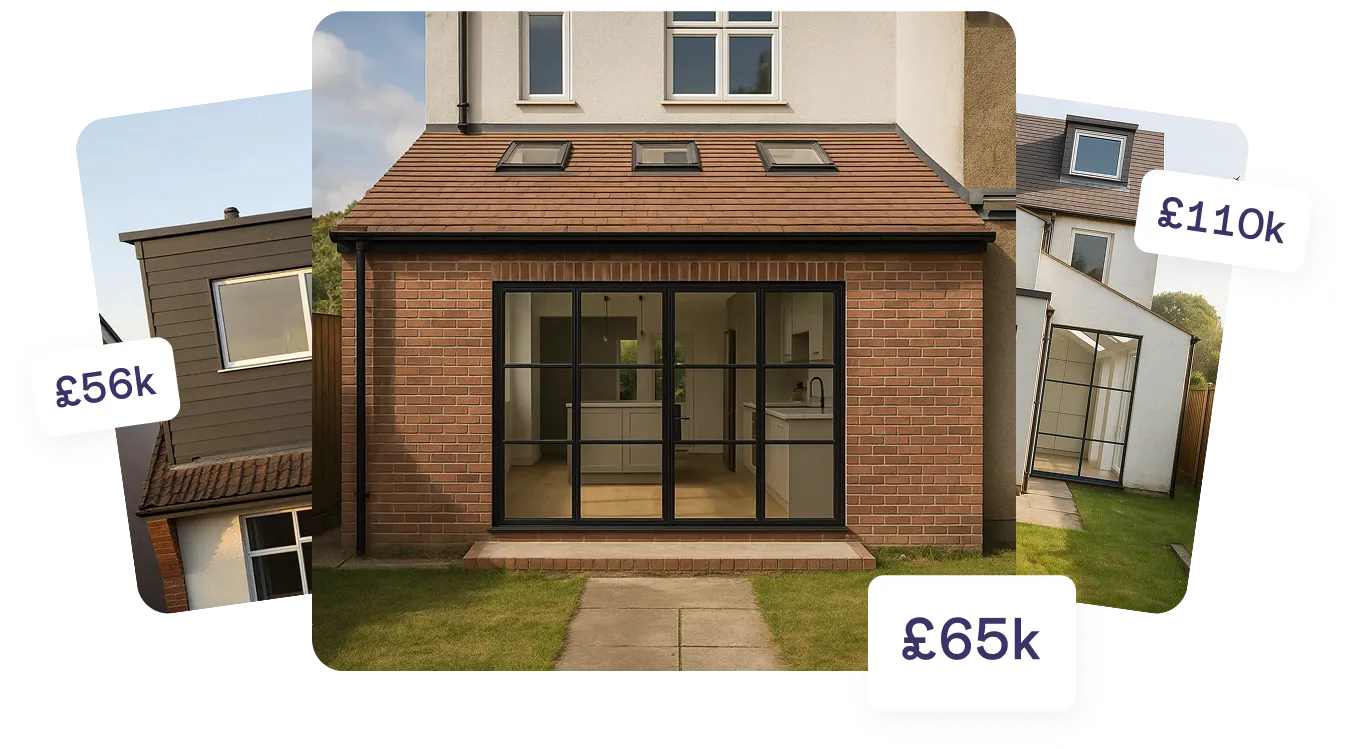We recommend you put 10% of what your construction costs aside. This will help protect you in the event something goes wrong and stop you from having to scramble for extra cash at the last minute.
Learn more about working out the cost of a project.
Feeling a little daunted? Don’t worry, getting an accurate budget for your project is no small task. For the best results, we recommend working with your architect to nail down these individual costs. At Resi, our Finance service works with our customers to get a detailed costing plan in place, so they can secure the right funding at the right time.
Approaching builders for quotes too early
Speaking of the right time, you need to be careful at what time you approach builders for quotes.
In your excitement to get things going, it can be tempting to start approaching contractors as soon as your architectural drawings are in hand. However, the drawings you receive during the planning stage lack technical details and are mainly concerned with the exterior elements of your project.
Without these technicalities mapped out, it’ll be difficult to get an accurate quote. Therefore, by approaching contractors at this stage, it’s likely the price you receive is liable to change. Homeowners who aren’t aware of this, however, see these quotes and secure loans off the back of them and then end up in trouble when unexpected costs crop up on site.
To stay safe, we recommend you only approach contractors once your building regulations work is underway.
Learn more about building regulations.
A bad payment plan in your contract
Despite construction taking up the majority of a project’s budget, you would be surprised at how cavalier people can be about their contract, especially around the payment plan.
To keep your project safe, we recommend you always go with a JCT contract and have your payments be made once key milestones have been met. For example…
Rather than pay money upfront, a percentage of your payment will be made when the foundation work is complete or the superstructure. These elements can be inspected by a project manager or your architect to ensure the quality is up to scratch before any cash exchanges hands.
Otherwise, by parting with big chunks of cash upfront, you run the risk of your builder misappropriating your funds and even putting you at risk of their company going bankrupt.
Your home (and budget) is left unprotected
Payment plans aren’t the only thing you need to worry about in your contract. The other important detail to consider is insurance.
In order to protect both your home and your finances, it’s important that you have in place these three key policies…
Home insurance
Did you know, during construction, you won’t be covered by your regular home insurance?
To make sure your home is safe, it’s worthwhile shopping around for the best renovation insurance. Alternatively, you can sometimes just inform your current home insurer of your intended project and they can update your package.
Structural warranty
This warranty will protect your project for 10 years from ‘latent defects’ to the structure of the building. This means, should something have gone wrong during construction, which isn’t spotted right away, your investment is safe from costly repairs.
Life insurance
If you’re taking out finance on your project, you’ll also want to either update your life insurance plan or take one out. Paying off home improvement loans can take years and you don’t want your surviving family facing the debt alone, should the worst happen.
No consideration for added home value
Unless you have a nice pot of savings, it’s likely you’ll be using a loan to fund your project, such as a remortgage. However, it can be a mistake to remortgage your home from the start, as it won’t take into account the value you’ve added to your home.
To be smart and to get the best long-term repayment plan, we recommend using a short term loan upfront so you can remortgage your home once the work is complete. Need help navigating this funding route? No problem, just make sure the finance team you’re working with is a specialist lender with property experience.
As official partners to the Mortgage Advice Bureau, our Finance service is able to source the best lenders and rates for your project, while also working with your designers to ensure you get the right amount of funding at the right time.
To learn more about avoid monetary disaster and to explore your finance options, book in a free consultation with our team here. Otherwise, explore remortgage deals with our new finance calculator!
Please note:
- You may have to pay an early repayment charge to your existing lender if you remortgage.
- Your home may be repossessed if you do not keep up repayments on your mortgage.
- There may be a fee for mortgage advice. The actual amount you pay will depend upon your circumstances. The fee is up to 1%, but a typical fee is £495.




